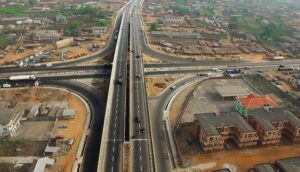Overriding Public Interest in Land Use: Striking a Balance in Lagos
 Overriding Public Interest in Land Use: Striking a Balance in Lagos
Overriding Public Interest in Land Use: Striking a Balance in Lagos
Land in Lagos is more than property. It represents homes, livelihoods, culture, and opportunity. Yet under Nigeria’s Land Use Act of 1978, every parcel of land belongs to the state governor, who holds it in trust for the people.
At the heart of this law is the principle of “overriding public interest.” It gives the government power to revoke land rights if the land is needed for projects that serve society. Roads, hospitals, schools, housing schemes, and public utilities often fall under this category.
On paper, this principle protects the greater good. In practice, it sparks conflict. For many landowners, “public interest” is another way of saying dispossession. Complaints usually center on rushed acquisition, poor communication, or inadequate compensation. For the government, delays in land access slow down vital projects in a city that never stops growing.
The law requires prompt and fair compensation when land is revoked. Owners must be paid for buildings, crops, and other developments on the land. But disputes frequently arise. How much is fair? When will the money come? And who ensures transparency? In Lagos, where land prices can rise overnight, delayed payments often leave landholders shortchanged.
Defining “public interest” also remains a grey zone. A new highway or public hospital is clear enough. But what about projects built through public private partnerships? When communities are cleared for luxury estates, questions surface. Is that truly in the public’s interest, or in the interest of private profit?
ALSO READ: UNILAG Loses 239 First-Class Lecturers Over Poor Pay – Ex-VC
For Lagos, the solution lies in fairness and trust. Communities must be consulted before revocations, not simply notified after decisions are made. Compensation should reflect not only structures but also livelihoods, relocation costs, and the social fabric that is torn apart. Independent valuation, clear payment timelines, and accessible channels for grievances would reduce tension.
Technology can play a role too. Publishing acquisition notices, project details, and compensation schedules online would improve accountability. In a city where rumors move faster than official statements, transparency is the best defense against distrust.
Overriding public interest should protect society, not empower abuse. Lagos faces increasing pressure on land as its population and economy expand. The way government applies this principle will determine whether development feels like progress or displacement.
The law grants authority. What Lagos needs is wisdom and fairness in execution. Only then will public interest serve not just today’s residents, but generations to come.
— By Olawale, Estate Surveyor, Lagos
Content Credit: Moyosola Oni
Image Credit: Google Search .Com




